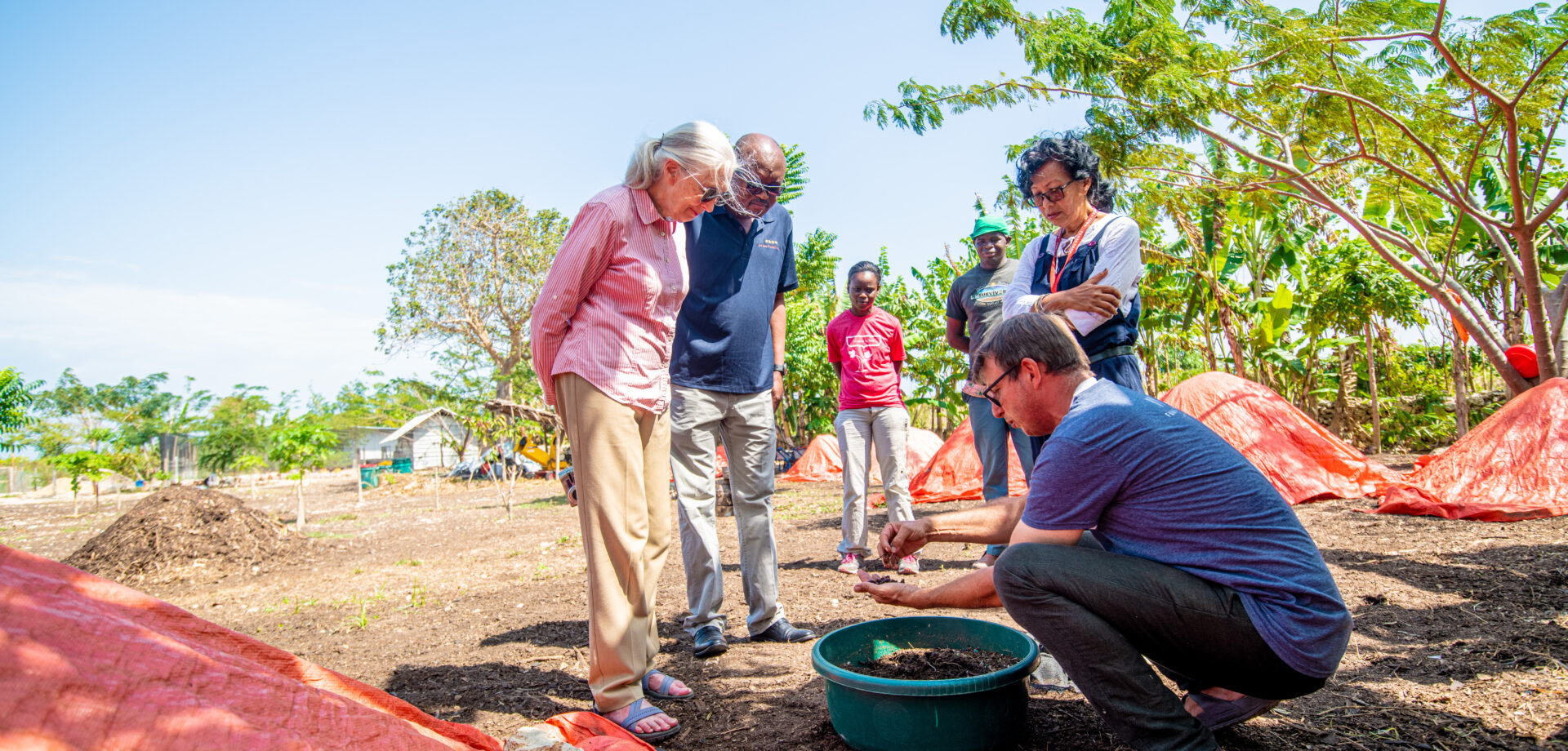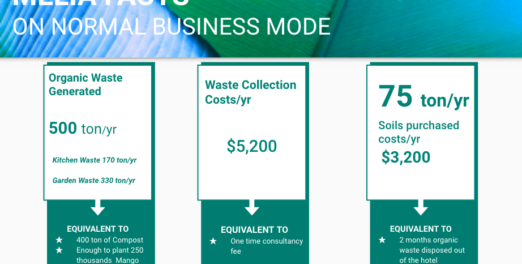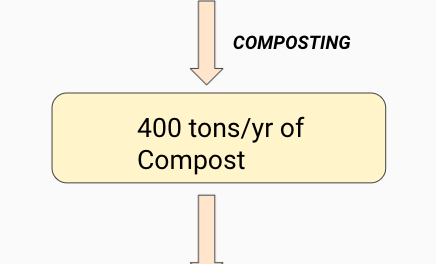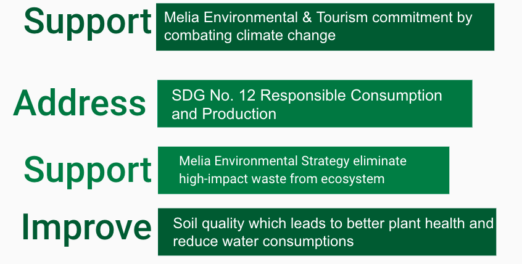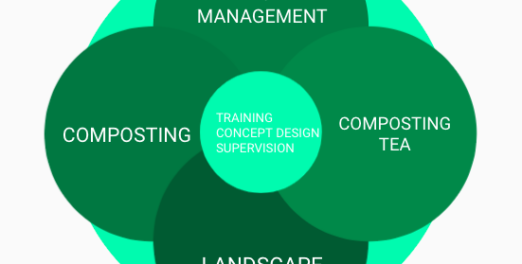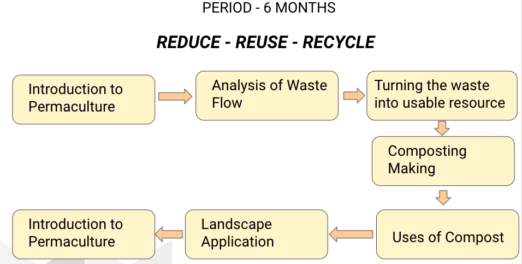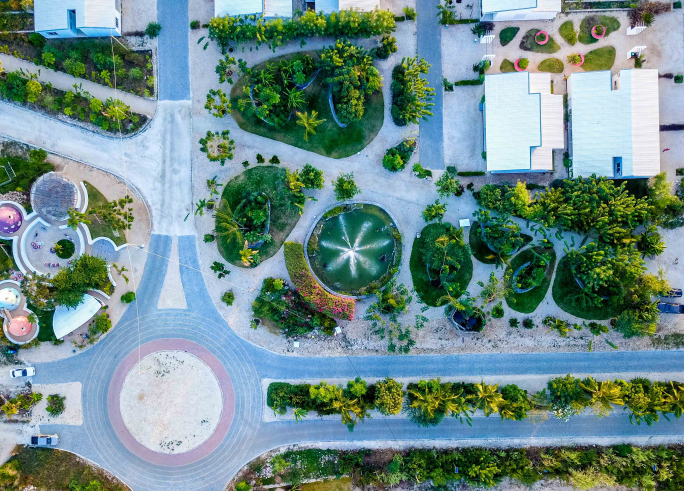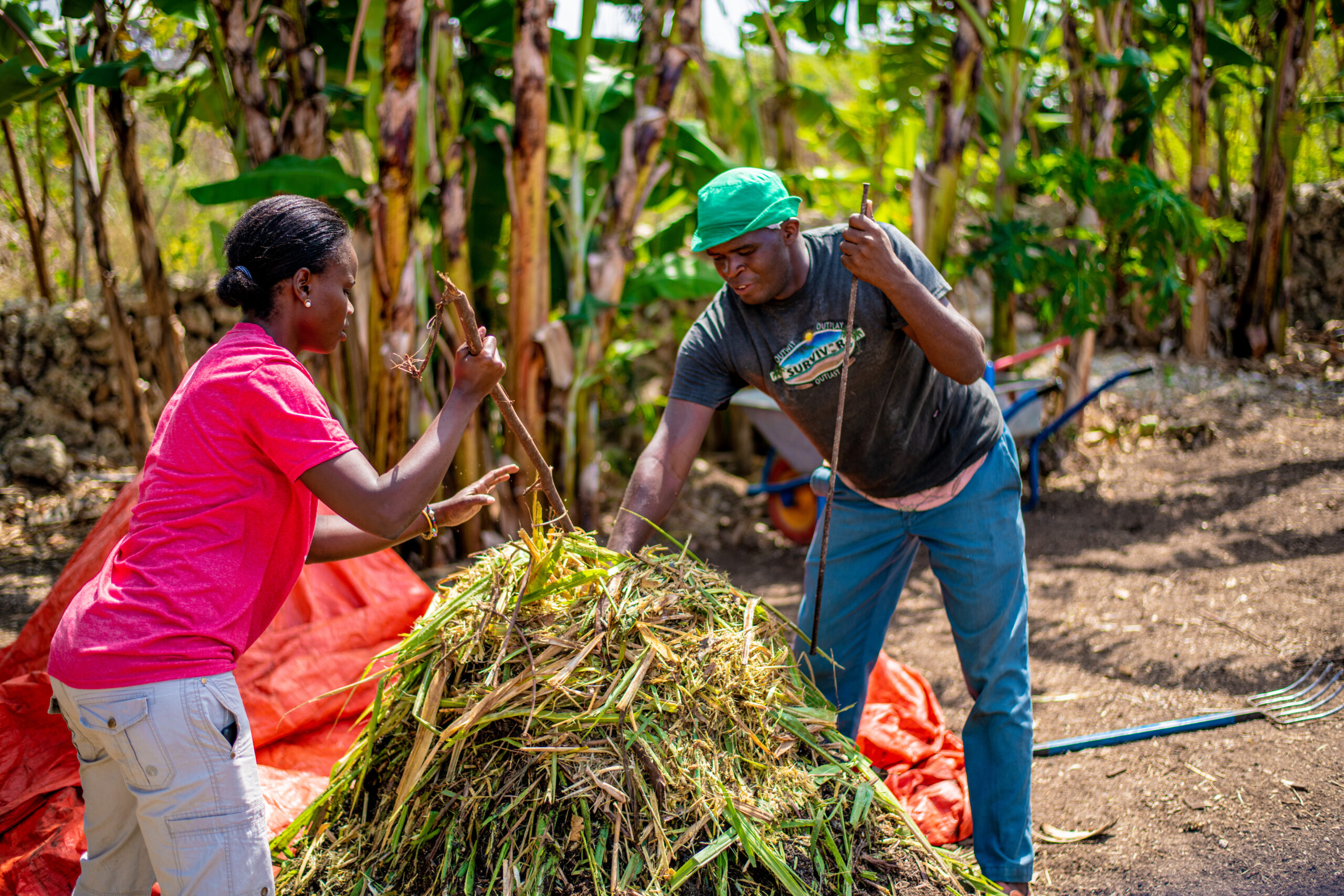
When hotels or private homes are developed, soil is usually taken from more fertile areas inside the island and transported to the development.
This costs money and threatens the ecological functioning of the areas where it is being extracted. We need to create our own soil, which also helps to deal with the issue of waste management.
For the Melia composting project, we are applying a technique where a good compost mix should contain a ratio of 40% nitrogen and 60% carbon. It is first turned every four days and then every second day. The temperature should not exceed 65 degrees Celsius in the compost heap, as this guarantees the highest amount of soil biology at the end of the process. After 18 days the compost is finished and then sieved. The finer materials are fed to worms, which enhances the compost with plant growth hormones to create more fertile soils for the development. Once multiplying in large quantities, these worms can also be fed to poultry (ducks, chicken, geese), or sold to fishermen. The bigger materials that are sieved out are used as mulch. Composting not only prevents the organic materials becoming useless when they are mixed with all other kinds of wastes in landfills, or even become hazardous when they are burned. Instead they are turned into a resource that provides the basis for a new development to raise its green infrastructure without extracting soil from other areas of the island. By using these natural methods to build soil instead of using chemical fertilizer, and by providing plant diversity, beneficial birds and insects will be attracted that will help to achieve the balance of the system.
Feasibility study
Albert Einstein
"Look deep into Nature, and then you will understand everything better."


